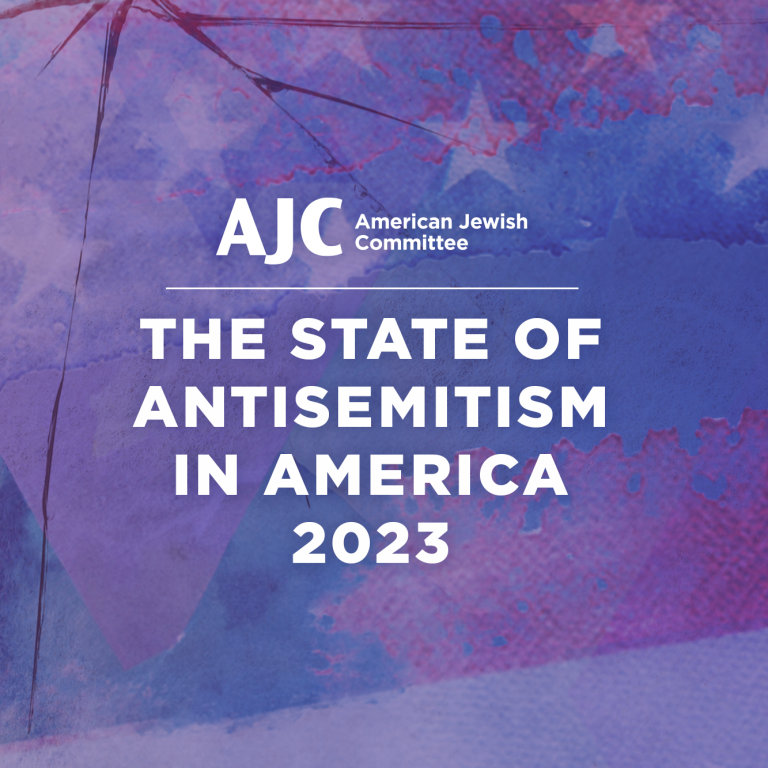April 11, 2024
Less than a year since the White House unveiled the U.S. National Strategy to Counter Antisemitism and six months after the Hamas terrorist attack on Israel, lawmakers on Capitol Hill have now introduced the Countering Antisemitism Act, a bipartisan, bicameral effort to curb the rise of Jew hatred on American soil and the budding notion that antisemitism is suddenly acceptable in the U.S.
Inspired by the White House National Strategy released in May 2023, which AJC first urged in November 2021 and AJC CEO Ted Deutch pushed during his previous time in Congress, the proposed bill provides concrete actions to fight antisemitism on a federal level such as a full-scale examination of Holocaust education from kindergarten to high school graduation and an annual threat assessment by law enforcement.
“The surge of antisemitism in the U.S. is an urgent threat to Jews and to all Americans, a threat which has only grown more severe since Hamas’ October 7 massacre in Israel,” Deutch said in response to the legislation.
The bill also would designate every May as Jewish American Heritage Month, giving it the official and perpetual recognition it deserves on the nation’s calendar.
Here are five things to know about the most comprehensive bill to address antisemitism in American history.
Data Shows the Threat is Deeply Felt
The bill comes amid a dramatic rise in both antisemitic incidents and rhetoric in response to Israel’s retaliation after the Hamas terror attacks.
AJC’s State of Antisemitism in America 2023 Report found that 63% of American Jews feel the status of Jews is less secure than one year ago — more than a 20 percentage point increase in just one year. One in four reported they were the target of an antisemitic incident—a physical attack, remark, vandalism, or messaging—in 2023, and 46% reported changing their behavior out of fear of antisemitism in the past 12 months.
Fighting Antisemitism is Nonpartisan
Bipartisan accord in both houses of Congress is rare in American politics today. But the need to combat antisemitism is not up for debate or compromise.
On this matter, co-chairs of the House and Senate Bipartisan Task Forces for Combating Antisemitism, Sens. Jacky Rosen, a Democrat from Nevada and James Lankford, a Republican from Oklahoma, are in lockstep, as are Reps. Kathy Manning, a Democrat from North Carolina, Chris Smith, a Republican from New Jersey, Randy Weber, a Republican from Texas, and Brian Fitzpatrick, a Republican from Pennsylvania.
Combating Antisemitism Requires a Point Person
The bill calls for a designated senior adviser to oversee the efforts to combat antisemitism here at home.
This National Coordinator to Counter Antisemitism would advise the president and help federal agencies implement more than 100 policies and practices included in the National Strategy that aim to curb the rise of antisemitism.
While Amb. Deborah Lipstadt, the Special Envoy to Monitor and Combat Antisemitism within the U.S. State Department, leads efforts to advance U.S. foreign policy to counter antisemitism throughout the world; the new coordinator would shepherd strategies to counter domestic antisemitism and guide the interagency task force to synchronize efforts on the federal level. The Coordinator also would conduct an annual analysis of antisemitism online and provide recommendations to Congress on how to stop its spread.
Accountability is Key
The Countering Antisemitism Act requires federal agencies to submit reports to Congress detailing their implementation of the strategy, placing the particular onus on the Department of Education to designate a senior adviser for efforts to counter antisemitic discrimination in higher education.
It also puts pressure on the Federal Emergency Management Agency administrator to ensure that the agency has sufficient resources and personnel needed to support places of worship, community centers, and nonprofit organizations via the Nonprofit Security Grant Program.
To keep track of any shifts in the climate, the FBI, Department of Homeland Security, and National Counterterrorism Center would conduct an annual threat assessment of violent extremism targeting Jews.
This degree of accountability is key. A month after the introduction of the National Strategy in May 2023, AJC established its task force to ensure that the plan would be implemented across the country and all sectors of society.
AJC has since published numerous guides to help government officials, civil society leaders, educators, and others integrate recommendations from the National Strategy into practice. AJC has also created toolkits for both university administrators and university students to confront antisemitism occurring on college campuses.
Every Sector of Society has a Role to Play
Much like AJC’s Call to Action Against Antisemitism in America and the U.S. National Strategy to Counter Antisemitism, the Countering Antisemitism Act recognizes that every sector has a role to play in fighting this pernicious hatred. From schools and museums to law enforcement and social media companies, the bill takes all of them to task.
AJC’s State of Antisemitism in America 2023 Report found that 92% of Americans agree – antisemitism affects society as a whole; everyone is responsible for combating it. It’s not up to the Jewish community alone.
The Countering Antisemitism Act acknowledges that “While antisemitism most directly and intensely threatens Jewish Americans, it also undermines democracy and threatens the safety and rights of all Americans.”





